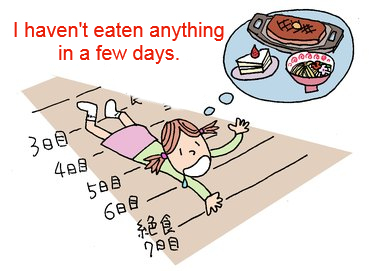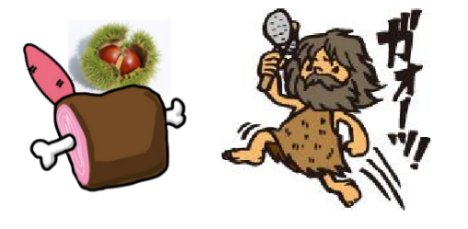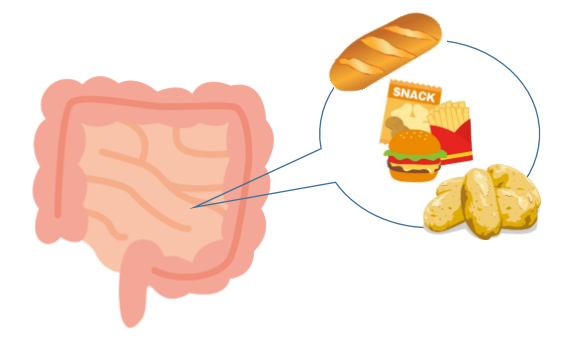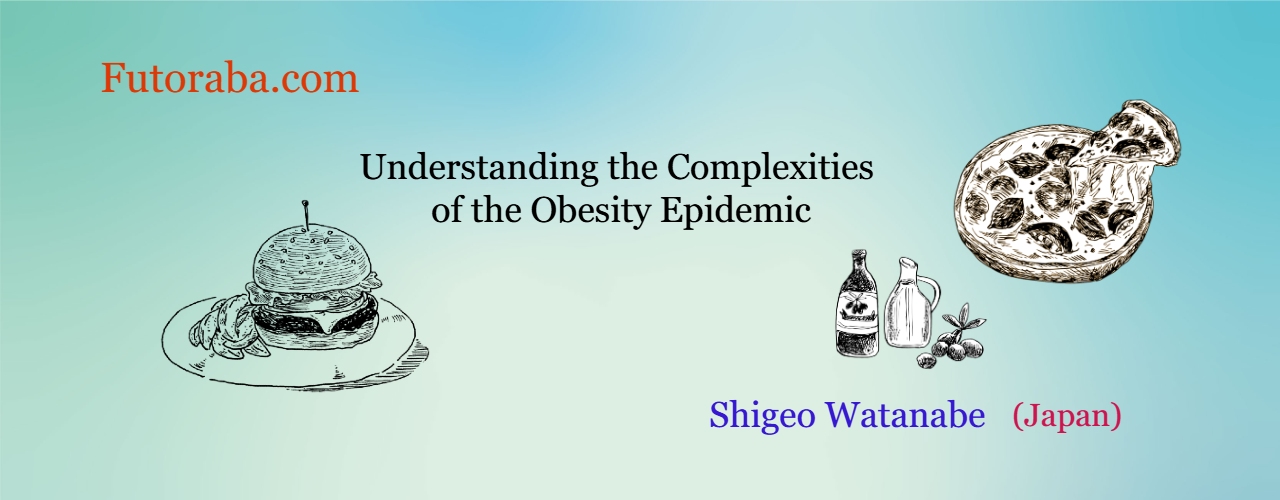Topics
10/17/2016
My Definition of “Intestinal Starvation”
If you haven’t read these articles below, please read them first.
A Set-Point Weight; The Precondition Regarding the Rebound Effect
Two Meanings to the Phrase 'Gaining Weight'
In my previous article, "Two meanings to the phrase 'gaining weight' ," I wrote that your set-point weight increases by the hunger mechanism-strictly speaking, intestinal starvation. I would like to explain it simply.

Of course, in order to gain weight, you need nutrition such as carbohydrates, protein, or fat.
However, it’s what happens later on...because there is a time lag between the emergence of the cause of gaining weight and the actual gaining of weight by eating.
What I mention here as “intestinal starvation” is different from the situation such as when you don't eat anything over a few days.
Definition
(1) It happens when you eat and when your gastrointestinal tract is working.
(2) It refers to the situation between meals, such as between breakfast and dinner, or lunch and late dinner, or dinner and the next lunch, where every substance in the entire intestines from a range of seven to eight meters has been digested.(It might be small intestine only.)
In other words, the stomach and intestines are working to nourish the body, but all the food eaten has been digested, and the body perceives it as “there is no food.” It’s different from simple hunger in that:
(a) basically, everything, including protein, fat, and even water, is digested;
(b) there is no fiber or anything close to it (※This is why it is said refined carbohydrates make you fat).

▽Over the course of evolution, humans stored nutrition in the liver, bones, muscles, and fat cells in order to prepare for cases of starvation. This is because they didn’t know when they could eat the next time.
From this aspect, getting fat should be the mechanism of the body trying to store energy. Then this mechanism of storing nutrition should work strongly with those who don’t eat a lot.
However, in this era with an abundance of food, it seems like those who eat a lot are obese and those that don't eat much are thin, and this tends to lead to a misunderstanding.
There is a reason for this, and it is my own theory based on my personal experience.
The question here is : "In what way do our bodies perceive starvation ?" Starvation is not decided by the amount of how much we’ve eaten, but rather, how the digestion process in the intestines proceeds.
That is to say, even if you eat a lot, if your diet is skewed toward easily digestible carbohydrates and some protein, and you end up being very hungry for hours, you will be close to a starvation situation.
On the other hand, even if you eat a little, if you eat a well-balanced diet including vegetables, dairy, meat, and fat every five to seven hours, then your body won’t perceive you as being in starvation mode. When there are some undigested substances in your intestines, your body perceives them as "there is still food." In other words, your intestines decide everything.

A long time ago, our ancestors had nuts, meat, or root vegetables, and then, even if they had nothing after that for a whole day, their bodies didn’t perceive it as starvation.
On the other hand, our current bodies sometimes perceive us in starvation mode depending on what we eat for as little as seven to eight hours.
This is an important message to convey that the increase in obesity that has been occurring worldwide since around 1980 is not necessarily due to increased caloric intake, but rather is related to (1) refined carbohydrates and easily digestible food, and (2) irregular eating habits-skipping breakfast or late night meals, etc.-associated with lifestyle changes.
[Related article] Why Does the Body Perceive That It Is More Starved than in the Past?

